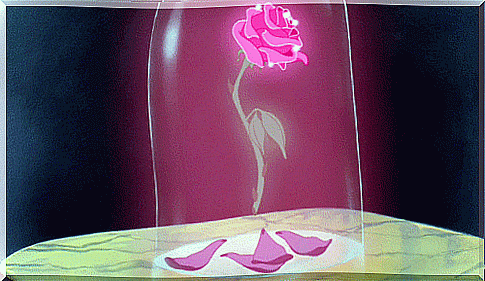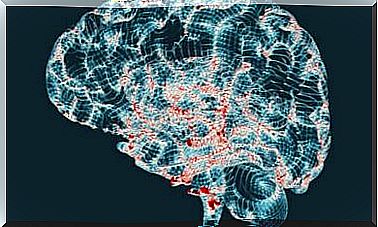Misunderstandings Can Create A Rift Between Lovers

The world is full of people who silently wait for someone they themselves have released (earlier); and of those who dare not come back, as much as they might want to. Because more often than we would like, negative experiences – and memories – such as mutual misunderstanding, destructive emotions, and mutually limiting beliefs, inside, in our experience, outweigh sincere, wholehearted feelings.
As the saying goes, life is like a long journey, in which we learn to take advantage of all the good that befalls us, while at the same time leaving the bad – processed and well – behind us. Unfortunately (b) we, in general, only seem to really realize this, and put it into practice, when it is almost ‘too late’. And for that double reason: chronic procrastination, and emphasizing the shadows rather than the light, we lose (and miss) a lot of valuable connections and vistas along the way.
Staring black and blind and cross-eyed at what you don’t like, what you feel resistance to, is not a healthy strategy – spiritually – and creates a great interpersonal barrier. Even people who normally value each other deeply can become estranged from each other by such a narrowing focus.
Really understanding the inner world, intimate intentions, the language, and the characteristic communication style of another person is quite complicated and requires patience. That is why it is highly advisable to closely observe our own mental and affective reactions – during the interaction – and not to automatically ‘fade out’. In this way we protect both the other and ourselves against unintentionally occurring detachment, and we do not allow ourselves – as lovers – to (unconsciously) drift apart through (verbal) friction, or by sinking into the morass of doom and gloom.

Everything depends on our attitude: flowers versus weeds
We can metaphorically understand and approach our minds like a radio that is not only always on, but also tuned to the same station non-stop. Sometimes the reporter – or commentator – gives us wonderful compliments, while at other times, he or she, at other times, swears at us, or hurts us astonishingly.
Although we are usually incapable of deliberately changing the station, and even less able to turn off the radio at all, we can choose to stop hanging on its (sheeting) lips, to stop this mad inner critic. to give the microphone of our attention. From this new, more autonomous position, you don’t have to take every sound and every noise from the radio (in other words: from your thought program) so seriously. And will not put you on hold or on pause for the rest of your life , as soon as the ‘man (or woman) of the radio’ tells you something that hits you right in the wrong throat.
To further illustrate this psychological dynamic, from a green-finger comparison, I ask you the following: imagine that you are a gardener, and that the plants in your vegetable garden represent the things you would like to have in your life. let (grow) grow. What kind(s) of seeds would you scatter, in the fertile soil of your own mind and spirit? What shapes and colors of flowers would you cultivate?
In that capacity, as a horticulturist, we ourselves are the chief, hand, and heart responsible for the care and reliable watering of our plants, and our budding seedlings. How much time and dedication would you treat this (internal) garden to? What exactly does this garden, and its plants, need from you? How would you care about the fate and well-being of your graceful cuttings and steadily growing crops?
Despite our best efforts, plants do not necessarily do what we want, or ideally require of them. Flower bulbs, for example, can pop up in the middle of our little tomato greenhouse, or ‘shoot up and down’ much more slowly than we actually planned and hoped. Sometimes even floral jewels and flower-hungry eye-catchers wither prematurely, regardless of the intensive care they have received from our sunny side. Even more important than the result is the enthusiasm with which you dedicate yourself to the well-being of your plants. And if that’s not the case, what’s stopping you in that case? What stands between you and your daily gardening duties ?

No garden worthy of the name is spared weeds. Our first impulse is often to pull those ‘undesirable invaders’ root and all out of our carefully prepared piece of earth. To understand more deeply the consequences of this reflexive reaction, imagine a gardener who, perhaps involuntarily, begins to fixate himself more and more on the weeds. Although he tries to exterminate every shoot not planted by him as quickly and as radically as possible, these uninvited green, spiky guests keep coming back. And so this vicious circle-dance of control goes on and on – and for all its frantic efforts, the damned weeds – sooner or later – are bound to rear their head again.
Whoever observes this spectacle from some distance would probably say that the gardener is wasting his time and energy on something that disgusts him, while in the meantime he hopelessly abandons the plants that are really close to his heart. He should therefore ask himself honestly and directly whether he is prepared to shift his gaze, attention and (green) fingers to the plants that are most dear to him, despite the fact that now and then, here and there, irrevocably sprouting weed seeds.
With this perspective in mind, it seems wise to our mental-sensory attention to positive paws , ie our full attention to give to the plants we see growing more than anything and prosper. In other words: to the frail, green friends that we have – accidentally – forgotten, because we became obsessed with the thousand-headed weed monster declared a great enemy.
This broadly applicable line of reasoning can prove its worth in just about every aspect of our lives, by softening our negative staring habit and making it (more) aware. So that we are less likely to be held hostage, inwardly, by our previously loudly screaming disapprovals and aversions. Because that is, without a doubt, one of the main, underlying causes of our misunderstandings. That possession, being completely hypnotized by the shadow, the shortcoming, the imperfection, and having to fight – cote que coûte – creates conflict, and, emotionally, an unbridgeable distance between us, and our loved ones: the people we just love. to love with heart and soul.









